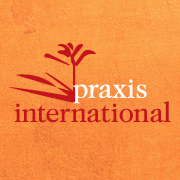Though AIR had only been implemented in Midland, MI for a few months, Kim Bruce, System Change Advocate, Shelterhouse, discusses the positive impact it’s had on the community in such a short time.
Full audio recording: Increasing Your Program Capacity for System’s Change, October 2014
[Recording may experience delay before playing]
Our advocates, which are our frontline staff, our client advocates are just thrilled about it. And the very first call that came in, the advocate who took the call recognized the name of the survivor right away because it was someone she had worked with before. So she took the name and phone number and then she made the outreach call, and when the person answered, the survivor said, “How did you ever know to call me?” And our advocate said, “Well, the police are giving us names and phone numbers now so that we can reach out to people.” And the survivor said, “I’m so glad you called me. I would have never called you because I’m so embarrassed that this happened to me again.” And we’ve been working with her ever since. Her assailant is very dangerous. He actually assaulted the police also, high bond, et cetera. But she’s just somebody that wouldn’t have called, from what she said, so just that story, much less some of the later ones, have been so energizing for our advocates, and I think they feel really respected that the police call us. So it’s a, it’s just a win‐win in lots of ways.
Kim’s real-world experience supports what the research shows: confidential, culturally relevant advocacy is intrinsically linked to safety and feelings of control over one’s life and produces better outcomes for survivors: psychological distress is reduced and court outcomes are enhanced. However, many rural survivors, including immigrant and survivors with limited English proficiency (LEP) and/or Deaf survivors, live in extreme isolation and may not know advocacy services exist or may be unsure about the services advocates provide. Even if the program has done a good job promoting its services, including in multiple languages, just knowing a resource is available, just seeing a flyer in the bathroom, does not guarantee a survivor will access it.
In order to provide the best access, advocacy programs typically provide many ways for survivors to find out about them and talk with them. Implementing AIR is a way to proactively reach survivors in the community who are at high risk of continued and escalating violence. Advocates:
- understand what the survivor is facing at this highly stressful time
- can provide immediately useful and relevant information about what is likely to happen next with the system’s handling of the case
- can provide information about the types of services and support the survivor is eligible to receive, such as federal or state funded public benefits, civil protection orders, immigration relief, and crime victim reparations
- can help prepare for when the offender gets released
- know signs for increasing risk and danger
- can act as a liaison between her and multiple agencies to ease the burdens of criminal legal intervention
- can work with law enforcement agencies to obtain U or T visa certification on behalf of immigrant survivors
AIR also provides an opportunity for advocacy programs to hear first-hand about any complaints or problems survivors have with the law enforcement response (read an article in Praxis Rural Digest, Issue 5, on Building the Case for Systems Change). The advocate can document the problem and promptly bring it to the attention of law enforcement or 911.
